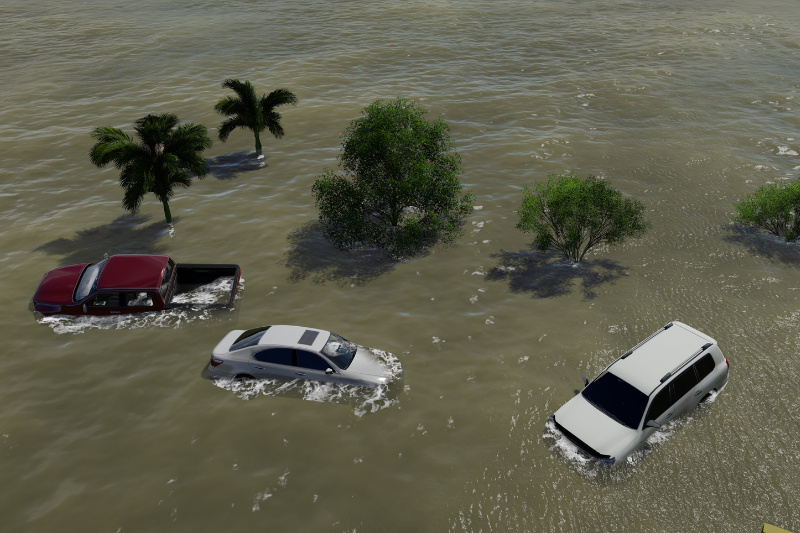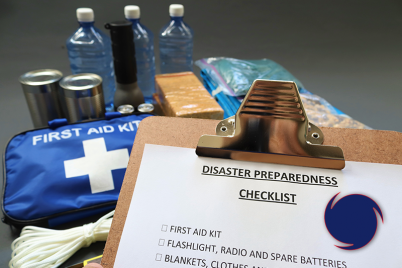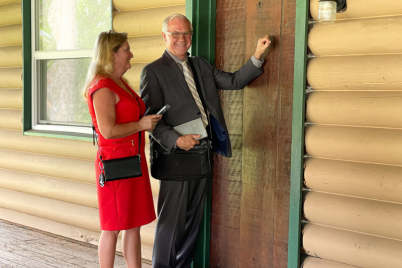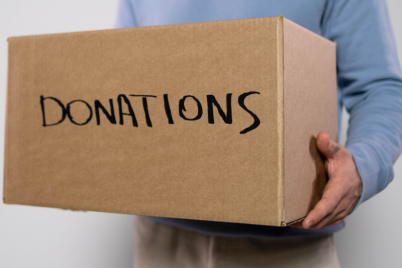With extreme weather events escalating in frequency and severity in recent years, experts urge families to plan ahead for natural disasters. Ready.gov recommends putting together a ‘collection of basic items’ to last for several days, including food, water, a change of clothes, cash, and a flashlight.
STATEWIDE — “Pack like we are never coming back here,” said Apalachicola resident Rex March, as Hurricane Michael headed straight for his home in 2018. Rex and his wife Sandy were forced to evacuate, although the hurricane ended up missing their home.
Over the past 30 years, the March family has had to evacuate multiple times, and now with another potential hurricane possibly threatening Florida, they are prepared. “Disasters don’t care about you,” said Rex, “so you have to be prepared for them.”
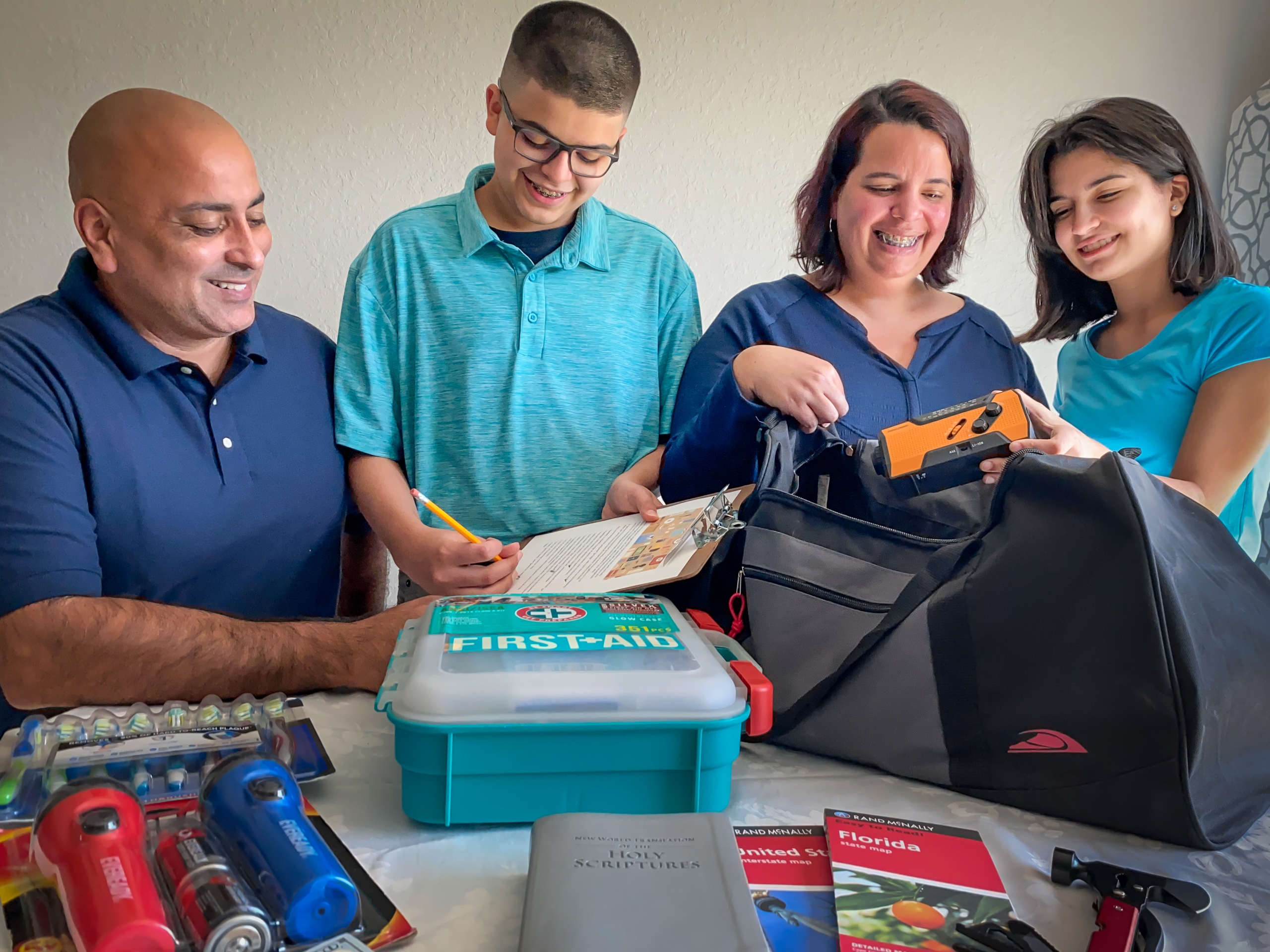
The Trejo family in Cape Coral goes over their ‘Go Bags’ checklist to make sure they are prepared.
Rex and Sandy March have their “go bags” ready and located within five feet of the exit that leads down to their vehicle. “It takes such a weight off your shoulders,” said Sandy, who leaves nothing to chance when it comes to preparedness, even keeping an inventory of their bags. The couple regularly checks and updates the “go bag” perishables. They even ensure they have ample cat supplies, with carriers and food ready to go.
With extreme weather events escalating in frequency and severity in recent years, experts urge families to plan ahead for natural disasters. Ready.gov, a FEMA website, recommends putting together a “collection of basic items” to last for several days, including food, water, a change of clothes, cash and a flashlight.
Rex and Sandy credit regular disaster-preparedness reminders through their congregation of Jehovah’s Witnesses and on the Christian organization’s official website, jw.org, for helping them to keep at the ready.
Cape Coral resident Juan Trejo and his family prepare a special duffel bag containing disaster emergency supplies “because things can change, especially with the weather,” said the husband and father of two teenagers.
The Trejos regularly check and restock their family’s “go bag” to avoid any last-minute scramble to obtain needed items. Because everyone in the family knows where the duffel bag is located, Juan says they “can grab and go.”
“Being ready to face a natural disaster may be the difference between life and death when it unexpectedly hits,” said Robert Hendriks, U.S. spokesperson for the Christian organization. “We can’t just say life is precious; we need to live it. That’s why the Bible’s advice to take practical steps to protect ourselves and our families from danger make so much sense — even if threats seem far off.”
Juan’s wife, Leanny, echoes the need for vigilance: “If you don’t prepare and you wait until the last minute, you might not have that last minute, and it could mean your life.”
In general, it is recommended that you keep at least three gallons of water per person and three days of nonperishable, ready-to-eat foods.
Also, some families have prepared “go bags” with such items as the following:
- Blankets, complete change of warm clothes, and sturdy shoes
- Flashlight, radio (battery or windup), and spare batteries
- First-aid kit and a whistle to signal for help
- Eating utensils, can opener, pocket tool set, and waterproof matches
- Dust masks, waterproof tape, and plastic sheeting for shelter
- Toothbrushes, soap, towels, and toilet paper
- Child-care supplies and special-needs items for seniors or the disabled
- A waterproof container with needed medication, copies of prescriptions, and other important documents
- List of emergency contacts and meeting places and a local map
- Credit cards and cash
- Extra set of house keys and car keys
- Paper, pencils, books, and games for children
- Bible
Not every item listed may be suitable in your case or in your part of the country. You might also have to include some items not listed here.

